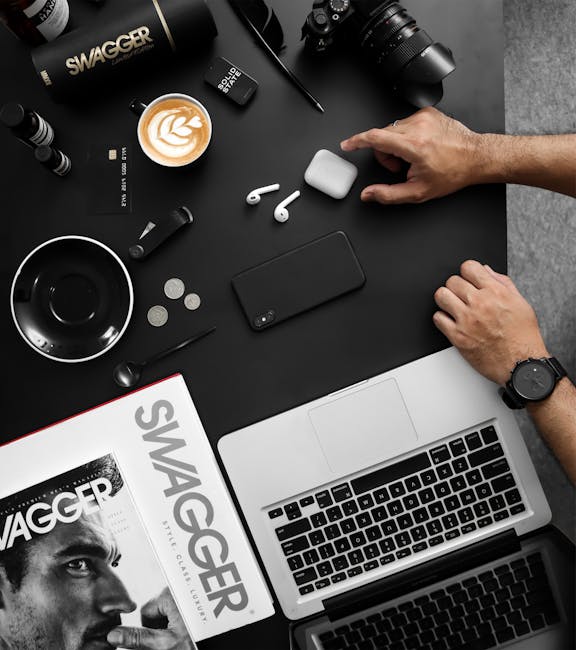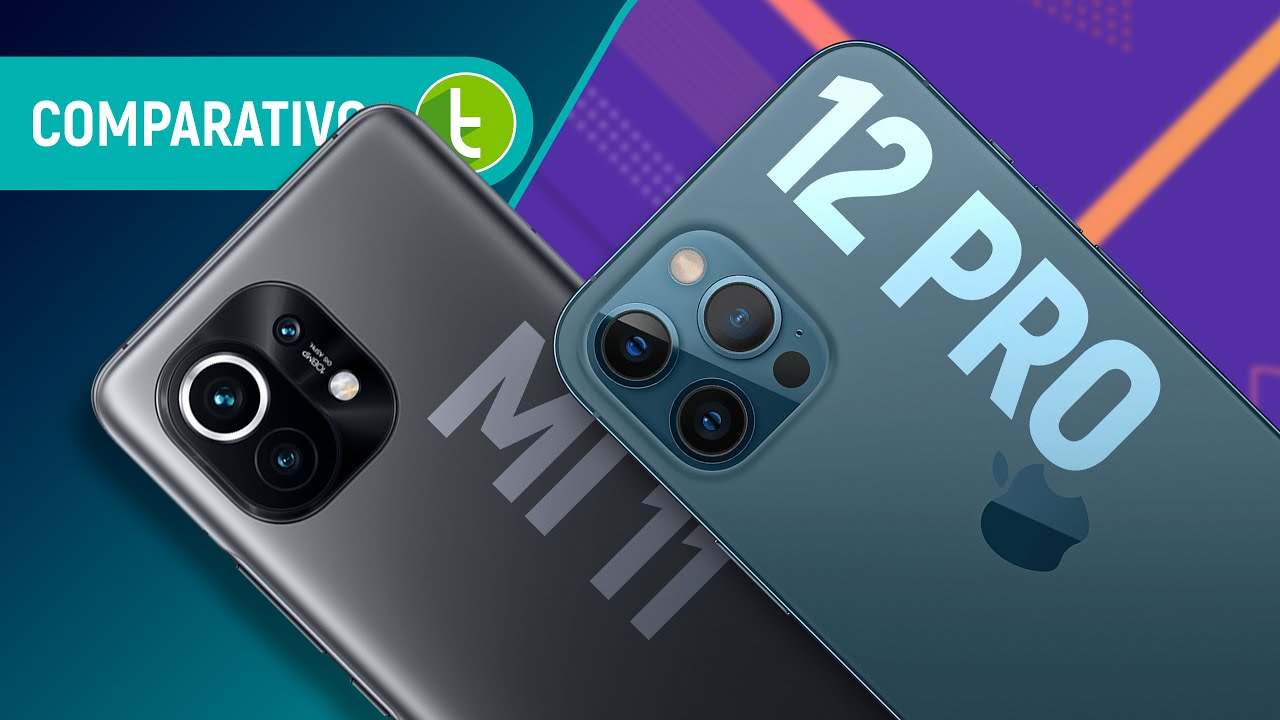Subtitled by Paulo Montenegro – @pmontenegroreal( Twitter) Xiaomi Mi 11 and iPhone 12 Pro are two top of the line focused on different publics. While the first prefers to be a cheaper pinnacle for those looking for value for money, the second opts for the consumer who wants a fee cell phone and is already used to a firebrand ecosystem , no matter how much he will pay for it. Will Xiaomi be able to go head-to-head with Apple? This is what we are going to discover now in this comparison by tudocelular.com. Here “were having” two real flagships under interpretation. The Mi 11 acquires from its precede the metal form surrounded by two veered glass sheets – the edges are now thinner for greater frontal exploitation and the selfies camera is in a defect in the upper left corner.On the other side, we have the iPhone 12 Pro with traditional straight perimeters and a frosted glass finish on the back and burnished metal on the sides. Even though very well known, the design of the Apple device now has greater resistance with the Ceramic Shield , not counting with the reinforced IP68 certification to survive until it is submerged to 6m of depth. The Xiaomi smartphone reacts with the new Gorilla Glass Victus that promises more durability to the user. The Chinese device still keeps the biometric book under the screen, something the apple prefers not to bet on as an option to its Face ID.Just as the current glasses have their advantages , not everything is heydays even among the most potent. They do not deliver Micro SD expansion or headphone jack and in the instances of the iPhone, the directory of absences still includes the plug adapter, which is present in one of the contender accounts. The Xiaomi creates a more modern construction, even if they are both have good advances in resistance. The first time is with the Mi 11. The fight is even more interesting when we talk about the screens. Apple has improved the OLED committee to the 12 Pro compared to its predecessor and now facets shades that border on perfection in addition to delivering HDR and Dolby Vision support for videos recorded with these technologies.But the problem here is due to the refresh rate of 60 Hz – this is the same native as the competitive Mi 11 but in this you can change speech 120 Hz, which presents much more fluidity , not to mention that Xiaomi managed to put one of the best Amoled screens of the moment in its flagship – the brightness outshines the iPhone and the resolution has now risen to Quad HD. Want more? The spectacle of the Mi 11 is still capable of reproducing a billion colors and backings HDR 10 Plus technology, and in addition, we have a much higher frontal utilization. The 12 Pro does not disappoint but the Chinese cell phone did a much better job on screen and makes the target. Apple begins to try to turn the tide in favor of voiced. The two creators raising stereo audio in their respective manoeuvres, but the Chinese company balances with a lower volume for the upper talker, in addition to focusing more on the mids.The apple, on the other hand, delivers a well balanced sound quality, with a sound capability in the 12 Pro at the level of the Pro Max variant. The two smartphones do not need headphones in the box for an individual experience, you certainly won’t miss them “ve been thinking about” the music caliber, only that you will need to invest in some wireless if you want to listen more privately, since there is no physical connector on both. The iPhone constricts the difference in the score with the dot in sound. In software, it is the classic struggle between operating systems – on the one paw we have Android 11 under the MIUI 12 is compatible with good agility and fluidity; on the other is iOS 14, which delivers the conventional race we already know to navigate the interface outside, which will receive updates for long than Google’s rival. Among the main features of the system, the highlighting for Mi 11 is the shortcuts to facilitate screen recording and activate wireless overturn blaming, in addition to artificial intelligence for image betters and an upscaling. The iPhone responds with the fact that there are the now famous LiDAR sensor. It manages to measure the interval from the environmental issues to answers in augmented actuality or even to discover the dimensions of an objective – Apple ties for having a more agile method and with informs for a longer time.As two good tops of the line that are, the implementation of its met now likewise follow this rank but when we speak about quickened the iPhone is still well ahead thanks to the A1 4 Bionic platform, as our research established. Only when opening applications did the Mi 11 take an additional 17 seconds to complete the process. In benchmarks the Snapdragon 888 once proves its firepower when overcoming the challenger of Apple mainly in AnTuTu – but this seems to have little outcome in the real use for the effects that the application can bring in the experience. The two machines are not gamer but can run all current games without any crash or choking, simply a screen with a higher refresh frequency on the iPhone is missing to be able to extract more from the Games. Point for the iPhone and for being faster in our move evaluations, which turns the game for Apple on the scoreboard. Apple had advanced well in artillery in the entire family 11 but it seems to have returned to sin when it comes to the autonomy in its most current line and the iPhone 12 Pro is proof of that – it set out in 14 hours of use in our research, more three hour less than the Chinese competitor.This is also not the outcome of dreams for the Xiaomi model but here it is justified by having a bigger screen and more pixels at your disposal, and if the iPhone lasts less it loads faster, right? Whoever thought that is wrong. Even with the greater autonomy capacity, the Mi 11 manages to fill the artillery in 51 times plugged in, while the 12 Pro needed more than an hour and a half to do so. And there is also the lent feature of not having a charger in the box in all variances, as we has already mentioned. Longer autonomy, faster recharge and charger in the package depending on the copy, the advantage is numerous, so we give the Mi 11. a doubled spot. We get one of the cameras – in the rear list there are three on each side, the difference is that the third of the Chinese has a macro function while in the North American it is telephoto.Looking at the main one firstly, there were no changes in the Mi 11 comparison with its predecessor, which can be disappointing and if you were expecting evolution here, that being so, it generates fairly for photos full of details, complexion accuracy and high differ – the problem is competing with equilibrium in sharpness and low racket of the iPhone, which likewise creates greater focal aperture to register the brightest at night. The two ultrawide sensors are lost in the shadows, except that the Xiaomi one has greater problems with sharpness and HDR while the Apple one only has difficulties when it is dark. The Mi 11 macro has autofocus to get close to the subject and can capture details well, despite flunking in contrast.The iPhone’s telephoto tertiary lens, on the other hand, generates adequate idols even with the rather limited optical zoom than the larger family variant. Overall, we have a better quality for the 12 Pro that gets the point here. The Mi 11 assistances 8k videos at 30 FPS on the prime lens but restriction it to 4K with ultra wide and full HD on the macro. The iPhone releases 4K 60 fps on the three sensors.Apple also took great care in stabilizing, agile focus and in capture empty audio these last-place two peculiarities are mistakes in the Xiaomi device. With a greater balance of good points, the iPhone makes one more. The selfies on both sides match in contrasting emblazons, in addition to not returning so much noise. Portrait mode is able to separate aircrafts well on both smartphones, while portraits at night still deliver huge quality. The gaps are for the more yellowish color in the iPhone and a modest loss of sharpness in the Mi 11. The tiebreaker is in videos, which contributes advantage to the Apple device for being aligned with 4K footage at 60 fps. The Chinese model is limited to full HD resolution, so it is one more point that the iPhone 12 Pro takes. Ultimately, let’s talk about the values of both designs. The Mi 11 was launched in its Global version for something in the range of$ 700, while the values of the iPhone 11 pro start at$ 1,000. In Brazil, only the Apple model reached the market at a cost of R $ 10 thousand reais. Currently you will be able to find the iPhone for something in the range of R$ 7,500, as for the Chinese device, there remains the import or direct purchase of those persons who once do the procedure and sell it in the country.Not weighing possible import costs or starting to be purchased by importers, you can find the maneuver for something around R$ 6,000, which is already showing a more advantageous deal for your pocket. Therefore, the Mi 11 marks the end point in this comparison. The iPhone 12 Pro won the comparison chiefly for its performance in cameras, in which it wrote down all the points – but it is important to highlight the Mi 11 which managed to take advantage in topics relevant to the consumer such as design, screen and artillery, besides cost-benefit ratio it stipulates. This stimulates it a viable alternative for those who do not want to spend much more and want to have a high quality cell phone. And that’s it, but before closing this video we want to know from you the outcome of the comparing matches what you think of each device? In your opinion, which characteristic stands out when choosing a smartphone? Which of these two would you take home? Participate in the cavity below and take the opportunity to see this comparison also in text there on tudocelular.com, with very good proposals for both models.I’ll stick around, a big hug and until next time ..





